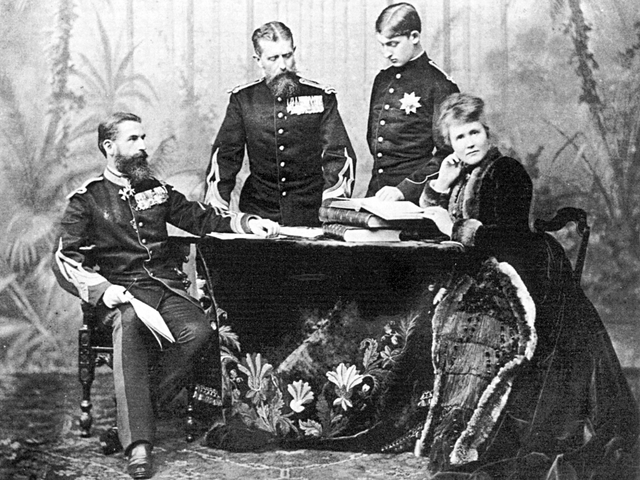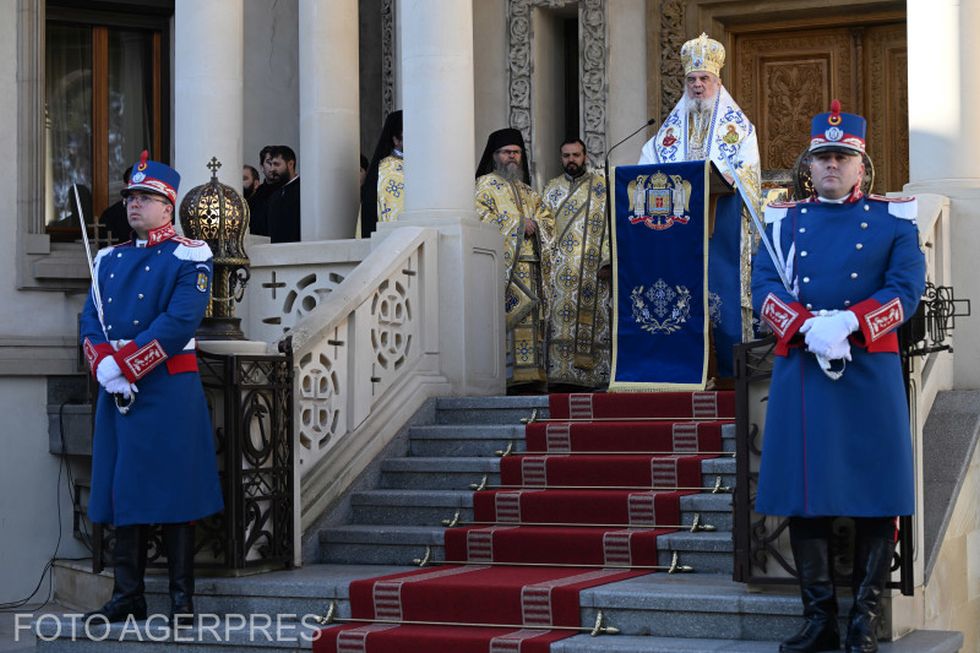Carol I of Hohenzollern-Sigmaringen, King of Romania and Bulgaria
In mid 19th century the Balkan states were trying to get rid of the Ottoman influence and to adopt the western model of economic, political and society modernization.

Steliu Lambru, 08.12.2014, 13:07
South-eastern Europe in mid 19th century was in turmoil. The Balkan states were trying to get rid of the Ottoman influence and to adopt the western model of economic, political and society modernization. The anti-Ottoman reactions went hand in hand with the local rivalries generated by the idea of nationalism which each nation boasted before the great powers to show their superiority as compared to the other nations, a superiority which was only illusory. There was rapprochement between some of the nations but it eventually failed because of the complicated geopolitical games at European level. Once such failed rapprochement was that between Romania and Bulgaria, two neighbouring countries that were seeking independence.
The historical relations between Romanians and Bulgarians had their ups and downs. The stronger Ottoman presence in the Balkans starting with the 14th century led to the instatement of the Ottoman peace, which meant control of the Crescent Moon over all the nations in south-eastern Europe. In the first half of the 19th century the Romanian elites had managed to individualize the Romanian space and give it state identity, while the Bulgarians were in full process of getting their own identity. The Bulgarians who emigrated from Romania after 1850 spread the nationalist ideas south of the Danube, in the territory occupied by the Turks, which was to become the nucleus of the future Bulgarian state. The coming to Romania’s throne of Prince Carol I of Hohenzollern-Sigmaringen in 1866 brought stability to Romania and put the country on the path of modernization and Europeanization. After the Russian-Romanian-Turkish war of 1877- 1878, as a result of which Romania became independent, Carol I came to be seen as a responsible and credible sovereign.
Romanian and Bulgaria had got closer than ever before and the 1877-1878 war was the peak of their rapprochement. It was actually the close friendship established between the Romanian army and the troopes of Bulgarian volunteers who were fighting alongside the Russians and Romanians. Many Bulgarian fighters received Romanian decorations. Besides this friendship among soldiers there was also a cultural component to the relation between Romania and Bulgaria. Historians would talk about the Romanian-Bulgarian medieval state of brothers Petru and Ioan Asan, created through the common fight of Romanians and Bulgarians against the Byzantines.
The rapprochement between Romania and Bulgaria was also due to the mutual affection shown by Prince Carol I of Romania and the Bulgarian Prince Alexander of Battenberg. Proclaimed prince in 1879, at the age of 22, Alexander, a nephew of the Russian tsar Alexander II, was 18 years younger than Carol I. Alexander’s attempt to govern without Russia’s approval, as he had been talked into by the Bulgarian politicians, led to a crisis that removed him from the throne in 1885. It was in 1885 that the idea of a personal union between Romania and Bulgaria emerged. In June 1886 a group of Bulgarian envoys offered to Carol I of Romania the crown of Bulgaria, which meant a personal union between the two countries. The offer was very tempting, but the geopolitical reasons in the area led to the failure of that project. Historian Sorin Cristescu will speak next about the reasons why the idea of a union between Romania and Bulgaria failed:
“There was much talk about this personal union between Romania and Bulgaria both in 1878 and in 1886 when Alexander of Battenberg was dethroned. The Russians wanted to control Bulgaria, that is why the war of 1877-1878 occurred. The Russians thought that, if at the border of Europe there was a country sympathizing with France, namely Romania, which considered itself the younger sister of France, why shouldn’t there be a country, in their neighbourhood, that could be their younger sister? The Russians’ involvement in this issue was huge. Bratianu himself realized that any acceptance by the Romanian political elite or by Carol I, any suggestion to accept the crown offered by Bulgaria, would have as a consequence Russia’s firm and categorical retort. So, the representatives of Bulgaria were sent back home. There were discussions about the personal union between the two countries but Bratianu, a cautious politician, cut the talks short.”
The idea of the personal union between Romania and Bulgaria should be viewed in the context in which federalism was one of the most en vogue projects in the 19th century Europe. The contesters of multinational empires wondered what would have followed after their dismantling. The answer was the formation of state federations or confederations to prevent domination by one single state. The 1848 revolution had seen federalism as a regional alliance principle and a viable policy for what would have followed after the collapse of multinational empires. Consequently the failure of the Romanian- Bulgarian dynasty had two causes: the threat of a Russian invasion and the final victory of nationalism.






























